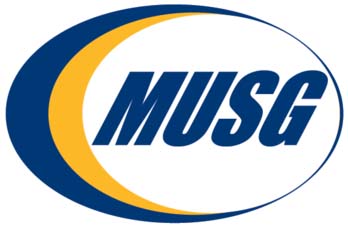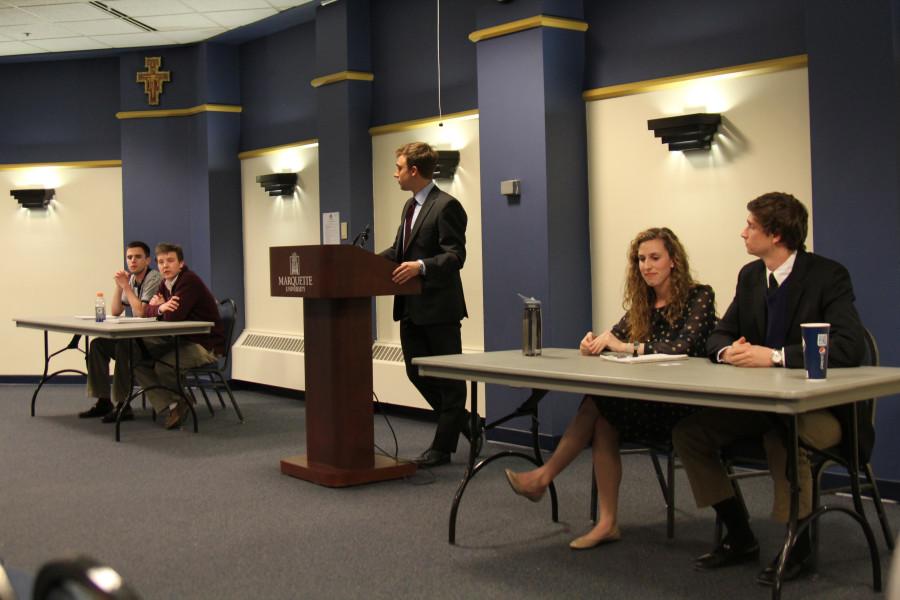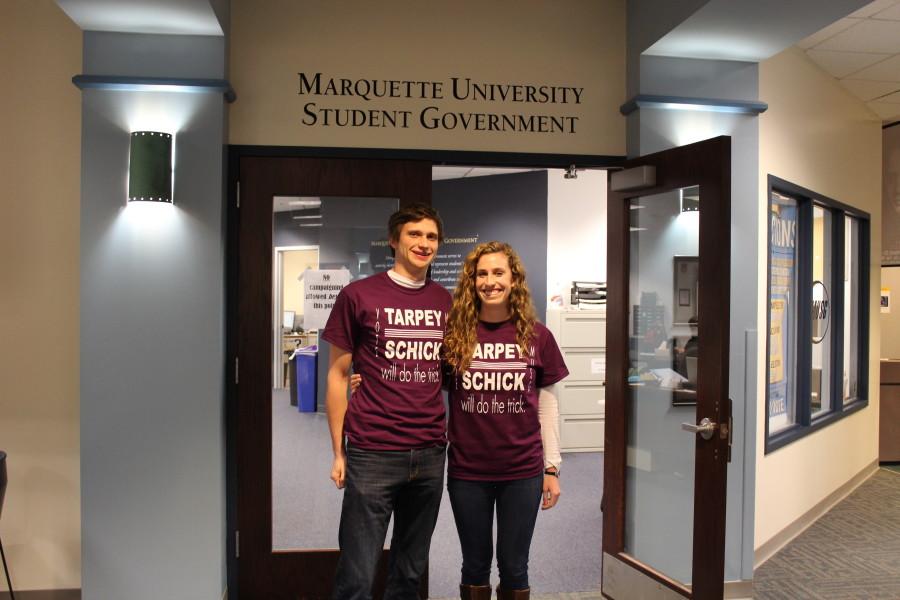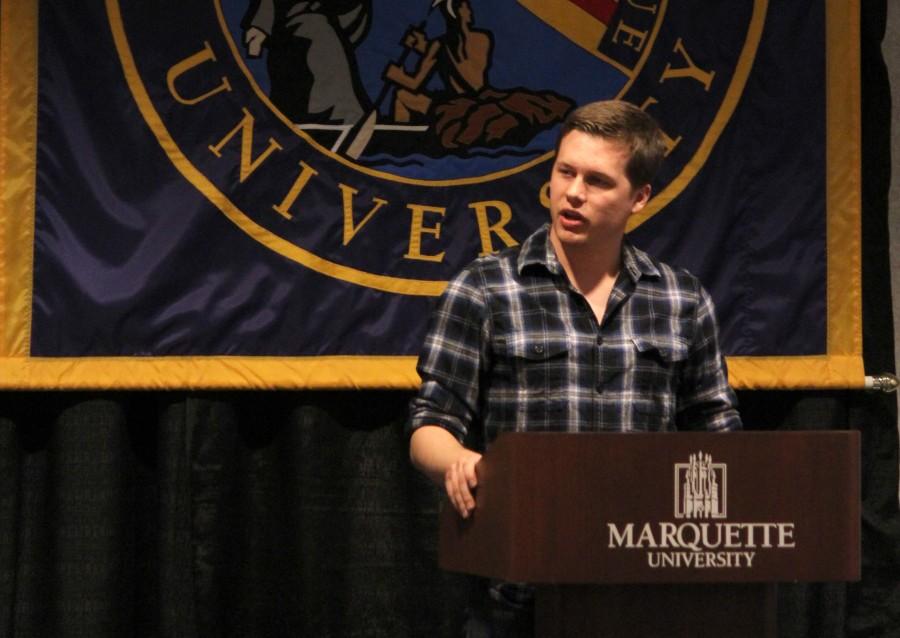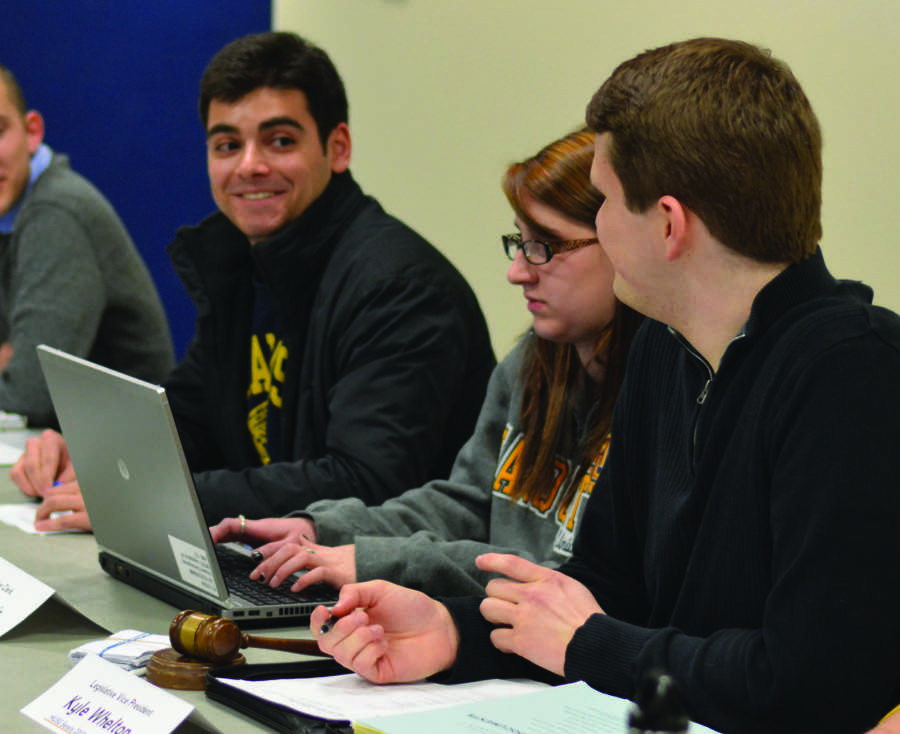Marquette Student Government will hold its election for president and executive vice president tomorrow, pitting Michaela Tarpey, a junior in the College of Arts & Sciences, and Thomas Schick, a sophomore in the College of Arts & Sciences and Schroeder senator, against Sam Schultz, a junior senator from the College of Arts & Sciences, and Zach Bowman, a sophomore Senator from the College of Arts & Sciences.
The election was originally slated to include the ticket of Will Knight, a junior in the College of Arts & Sciences, and Dan Bresnahan, a junior in the College of Business Administration, who finished second in the March 21-22 primary, ahead of Schultz and Bowman.
Violation and appeal
Knight and Bresnahan fell to third place after they were docked 17 votes for a mass texting campaign violation that occurred during the primary and were removed from the race. The hearing in which they were found guilty was held last Tuesday. Knight and Bresnahan then filed an appeal on the ruling, which was heard by the MUSG appeals committee. The appeals committee is separate from the elections committee that heard the initial violation case.
“The appeals committee found that the initial ruling by the elections committee was completely consistent and in accordance with the MUSG constitution, that there was a violation with sufficient evidence and that the penalty was fair and neither capricious nor arbitrary,” said judicial administrator Rebekah Newman, a senior in the College of Arts & Sciences, who chaired the appeals committee.
The committee was made up of Newman; Kyle Stranahan, an off campus senator and a senior in the College of Business Administration; and Heinz Schelhammer, a senior senator from the College of Business Administration. As chairman of the Business and Administration committee, Schick would normally sit on the committee, but he was replaced by Schelhammer due to his conflict of interest in the case as a fellow candidate.
One of Knight’s and Bresnahan’s chief complaints was that the 17-vote deduction penalty they were assessed – 5 percent of their primary vote total – was too harsh for the violation committed. David Kuester, the MUSG elections coordinator and chair of the elections committee that heard the initial violations case, said the penalty was assessed based on precedent set by past mass texting violations, the most recent of which occurred in 2008. The appeals committee found that the punishment was suitable based on precedent.
Knight and Bresnahan said they were upset about the decision, but they have endorsed Schultz and Bowman in the general election. They had the opportunity to file to run as write-in candidates by 5 p.m. Monday night but chose not to.
“We felt we had been fighting an uphill battle the entire time, which we are exhausted from fighting,” Knight said of that decision. “We fully support Sam and Zach and wish them the best. We believe Marquette students will be in very capable hands with them.”
Bowman said he and Schultz are happy to be back in the race.
“The fact that we’re back in the race due to the violation is just plain silly, but nonetheless, we’re obviously excited to have the opportunity to win the student body’s support,” Bowman said.
Platforms
Schultz and Bowman have focused their platform on academic issues. Schultz has spent the last two years as chair of MUSG’s Academics Committee, and he said his experiences dealing with academic issues gives his ticket an advantage.
“There are a lot of academic issues that need to be addressed, and I think we’re the only ones focusing on that,” Schultz said.
Schultz and Bowman’s platform revolves around improving advising, reforming CheckMarq and also making the Core of Common Studies more structured. They plan to work with the new dean of the College of Arts & Sciences, Richard Holz, on all academic issues.
Tarpey and Schick have also made academic reform an issue on their platform, with Tarpey noting advising as a key issue.
Overall, Tarpey described Student Organization Funding as the biggest issue for her campaign, pointing to increased publicity as the biggest reform needed.
“I think it is one of the biggest ways that students will see return on their student activity fee,” Tarpey said.
In light of the events that led to Schultz and Bowman being included in the ballot, both tickets have expressed interest in revisiting campaign rules, agreeing that there could be more detail in the rules, specifically in regard to what defines an unsolicited message, the violation for which Knight and Bresnahan were punished.
With so little time left to campaign, both tickets are concentrating their efforts on increasing voter turnout. Both have limited resources left due to the extended campaign season and would like to allocate them in the best possible areas.
“I think the more difficult thing will be increasing the low 17 percent turnout rate MUSG had for the primary,” Schultz said. “I know the student body is sick of this election cycle, but I really hope students will check their email and take a minute to vote.”

